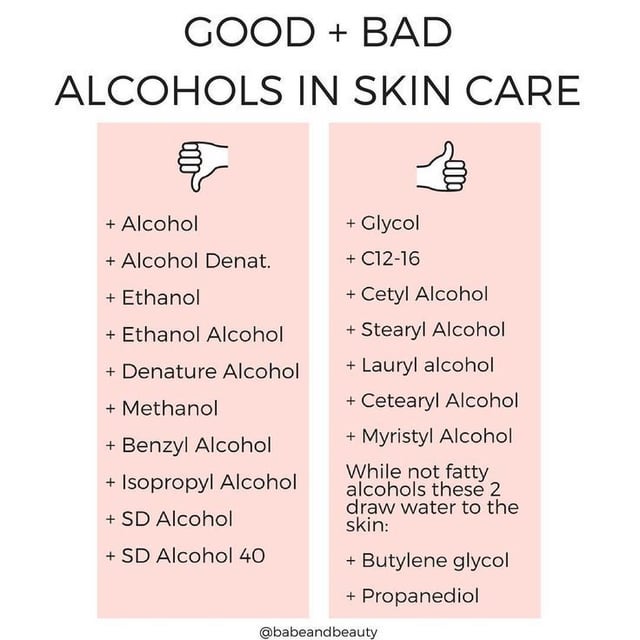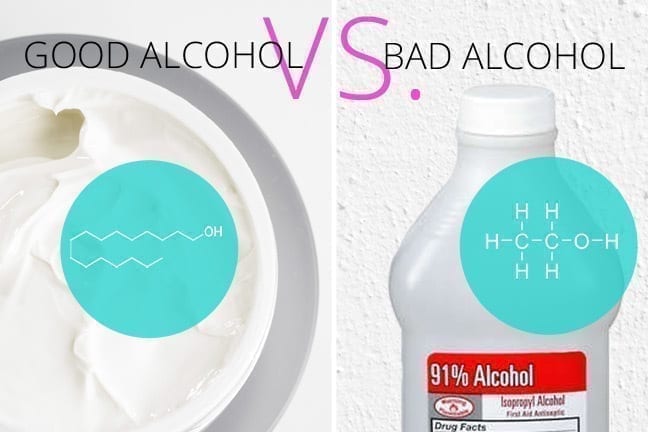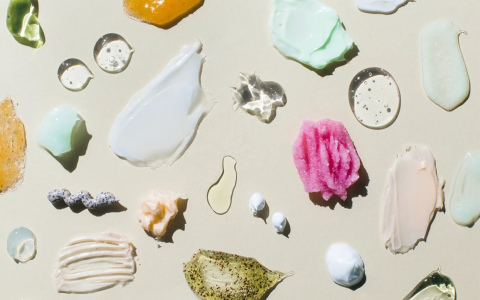Alright, let’s get into this whole alcohol in skin care thing. For ages, I was one of those folks – you know, see the word ‘alcohol’ on an ingredient list and bam, that product went straight back on the shelf. Didn’t even think twice. I’d heard all the scary stuff: it’s gonna dry out your skin, wreck your barrier, basically the number one baddie in the skincare world. That was my firm belief.

My Skin Was Having a Moment (Not a Good One)
So, a while back, my skin decided to throw a massive tantrum. It was a real piece of work – oily T-zone, but then my cheeks felt like the Sahara, and breakouts? Let’s just say I was getting reacquainted with my teenage angst. I was chucking money at every ‘gentle,’ ‘soothing,’ ‘alcohol-free’ potion I could find. My bathroom counter? Looked like a failed experiment lab. Seriously. And nothing, absolutely nothing, seemed to cut it. I was getting so fed up.
The Accidental Encounter
Then came this one day. I was properly at the end of my rope. I remember grabbing this toner; I think a mate had mentioned it offhand, said it helped her with her shiny forehead. Truth be told, I didn’t even squint at the ingredients list properly. I was just desperate for anything to work. So, I started using it. Morning and night. A few days in, I’m casually reading the tiny print on the bottle – because, you know, suddenly I’m a detective – and there it was: Alcohol Denat. My stomach just dropped. “Great,” I thought, “I’ve been marinating my face in the very thing I’ve been avoiding like the plague.”
But Hold On… What Was Happening?
Here’s the kicker, though. My skin wasn’t screaming at me. It wasn’t red, it wasn’t flaking. Actually, that oil slick I usually sported on my forehead by midday? It seemed a bit… less slick. I was proper confused. So, I did what any self-respecting, skincare-confused person does: I dived headfirst into the internet. And that’s when things started to make a bit more sense, or at least, become less of a “good vs. evil” situation.
I started digging around, reading bits and pieces from different sources. It turns out, ‘alcohol’ isn’t just one single entity out to get your skin. That was a bit of a revelation for me. I learned that there are different kinds:
- The ones I was always petrified of, like ethanol, denatured alcohol (the one in my toner!), isopropyl alcohol. These are the simple alcohols that can be drying if they’re in high concentrations or if your skin is already on the dry or sensitive side. They give that quick-drying feel and can help other ingredients sink in, or make a product feel lighter.
- Then there are these other dudes: fatty alcohols. Think cetyl, stearyl, and cetearyl alcohol. These guys are different; they’re often derived from fats and oils and can actually be good for your skin – they can be emollients, make things feel creamy, and even help keep moisture in.
This whole discovery process really shifted my perspective. I’d been painting all alcohols with the same “bad” brush.

So, Where Do I Stand Now?
Look, I didn’t suddenly become a massive fan of dousing my face in harsh alcohols. Not at all. But I stopped that instant panic mode. Now, I actually take a second to look at the ingredient list. Which alcohol is it? How high up is it on the list? What’s the product actually supposed to do?
For my skin, which leans combination, I’ve found that products with a ton of simple alcohol right at the top of the list still aren’t my best friends for daily, all-over use. They can make my skin feel tight and then, ironically, even oilier later on as it tries to compensate. But if it’s a spot treatment? Or lower down the list in a well-formulated product? I’m not automatically dismissing it anymore. And fatty alcohols? Yeah, I welcome those guys now. They’re in a bunch of my moisturizers and cleansers, and my skin is pretty happy with them.
It’s been a journey, from complete avoidance based on fear, to accidental use, to actually trying to understand the nitty-gritty. My main takeaway? It’s not so black and white. It’s about understanding your own skin, the specific product, and the overall formulation. Listening to my skin has become way more important than just following a blanket rule I picked up somewhere. And honestly, my skin (and my sanity) is much better for it.











